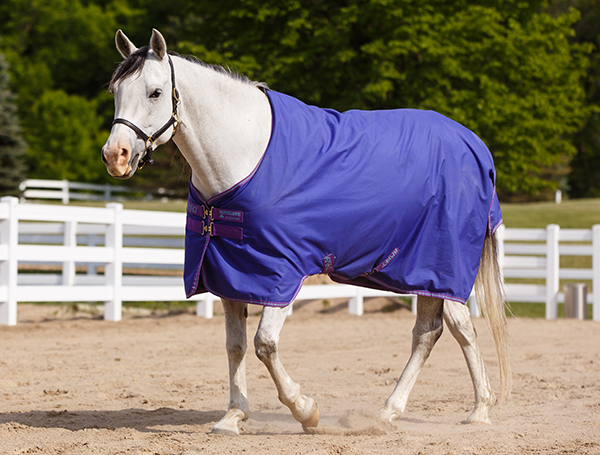Biosecurity for Horses When Traveling

Participation in horse shows, trail rides or other equine events is frequently a key reason why people own horses. Proper attention to biosecurity can help make certain that all are able to enjoy the events all year around.
Biosecurity simply means life protection.
The following steps may be useful guidelines to keep in mind as your travel with your horse:
- Work with your veterinarian to establish the appropriate vaccination program for horses that are going to travel. This may vary around the country, but will generally include Equine Influenza, Equine Encephalomyelitis (EEE, WEE, VEE as appropriate), Tetanus and Strangles. Additional vaccinations may be recommended by your veterinarian. Equine Herpes Virus (EHV1 and EHV4) has become a major concern.
- Many states or events require a current negative Coggins test (Equine Infections Anemia or EIA) and a current health certificate that you need to show when you arrive at the event. Regulations vary by state, so know what states you will be traveling in or thru.
- When you arrive at the show, check the stalls before you unload your horses to make certain they have been cleaned and do not have physical issues such as nails, broken boards etc. If stalls have built in feeders, make certain that they have been cleaned. If in doubt, consider bringing some disinfectant with you when you travel and cleaning those corner feeders or built in feeders.
- Do NOT use a communal water trough. When using a water hose or faucet, make certain the hose is not stuck into your water bucket when you are filling buckets.
- Do not share buckets or grooming tools with other stables or owners. You should have your own equipment and should disinfect it when you return home.
- As much as possible, avoid direct contact with animals from other farms or stables. (Easier said than done!) Keep an eye on horses in stalls adjacent to your stalls. Try to avoid any equine nose to nose contact! Some things that are cute may not be good biosecurity.
- If you groom or handle horses from other farms or stables, wash your hands thoroughly before you handle your own horses.
- If you travel with horses, consider how your home facility is laid out so that when you return home, you minimize risk to your other horses, particularly young horses and breeding animals.
The American Association of Equine Practitioners has useful Biosecurity Guidelines at their web site www.aaep.org. You can also contact your local veterinarian or local extension office for additional information. The United States Department of Agriculture also has a web site which provides very good information at www.aphis.usda.gov.
Being aware of good biosecurity practices can help you travel safely with your horses.
